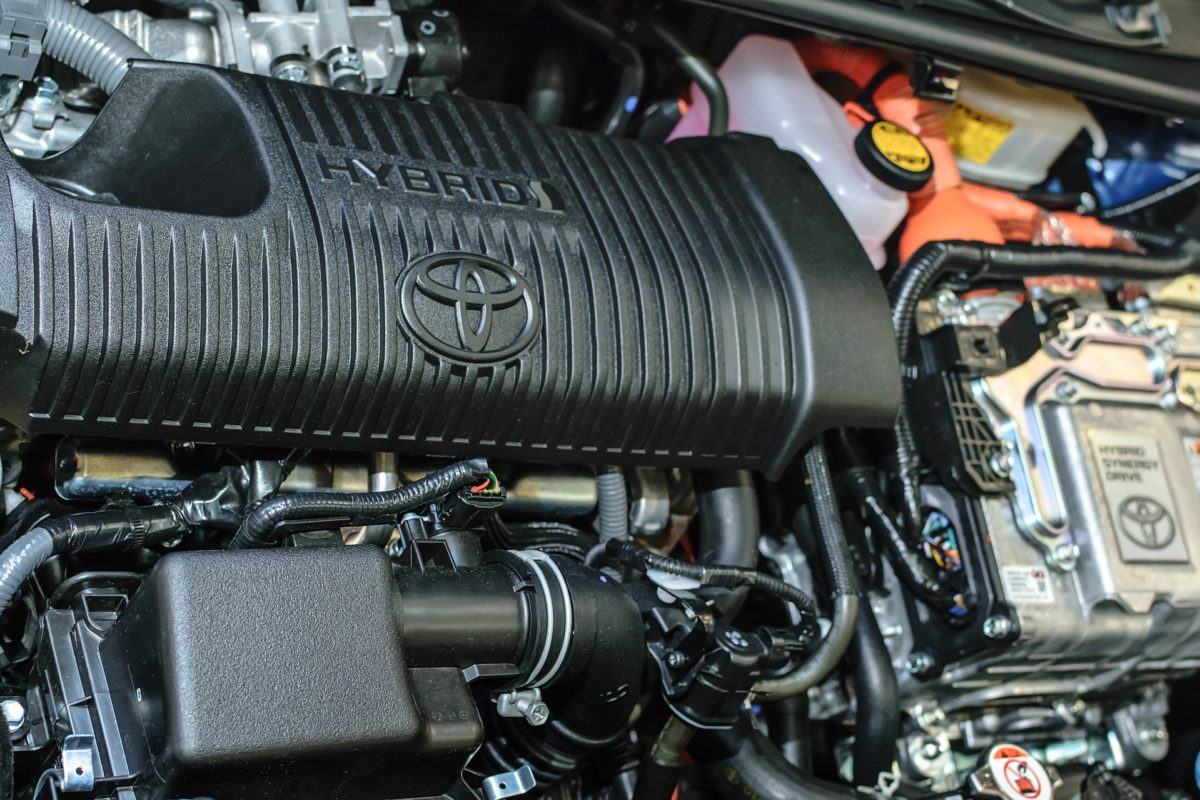New Technologies in the Car Industry

Hybrid and hydrogen cars are proof that energy-efficient automotive technology is well on its way towards putting an end to the domination of petrol-powered vehicles on the market. The hybrid, for instance, has been on the market for more than two decades. It is an environmentally friendly option which can be refuelled without restriction and is not solely dependent on electric propulsion. Technological advances have made them both more efficient and more affordable since their debut. The hydrogen car, powered by fuel-cells, still fails to convince the general public to opt for such a vehicle, mainly due to its high cost of production. If perfected to suit the needs and budget of most drivers, it would be the cleanest car imaginable – running on hydrogen, emitting just water from its tailpipes. Although there are pros and cons to both models, the hybrid is still in the lead.
Hybrid
The dual technologies of gas and electric power are what make the hybrid so unique. Even though an all-electric vehicle is, among other things, healthier for the environment, cheaper to run and maintain, hybrid cars are currently at an advantage since they can handle longer distances backed up by petrol power.
New models such as the plug-in hybrid variety allow for the car to be plugged in and charged when not in use adding to its efficiency. Then we have the hydraulic hybrid, which provides energy by using hydraulic fluid. This technology greatly improves fuel economy, especially in commercial vehicles, such as light trucks by 60 to 70%. Not only are they innovative and affordable, they offer drivers advanced aerodynamics, lightweight materials and smaller but more efficient engines.
Hydrogen hybrids are the future of hybrid development. With almost no emissions of internal combustion engines and high fuel economy attributes, they will be affordable, environmentally friendly and desirable vehicles. The realization of this model depends as much upon the change of several factors like the cost and fuel durability, as it does on the improvement of the technology itself. Another requirement would also be creating hydrogen economically as well as the adequate refuelling infrastructure.
Hydrogen
Clean, reliable, efficient, easy to refill – all the perks of a hydrogen vehicle. Just like with a regular car, you can fill up the tank, drive for about 350 miles and refill it again in less than three minutes. No more fumes and pollutants, the only emission is pure water. So how is this possible?
In essence, they are electric cars in which electricity is generated on board. The oxygen and the hydrogen in the car are mixed, releasing electrons used to power the electric motor. This reaction’s byproduct is water, which is channelled away from the car. The power produced is almost identical to one of the combustion-engine cars. Even though hydrogen vehicles are currently far from affordable, the concept behind the model raises awareness about environmental protection, thus they are constantly being improved in order to give us the greenest possible car.
Both hybrid and hydrogen methods strive towards a common goal – to be zero-emission vehicles, beneficial for the environment by reducing greenhouse gases and the use of fossil fuels. All-electric motors would be more efficient since they would be making use of instantaneous torque and all available energy. However, there’s a catch. If combustion is excluded in the future, vehicles will heavily rely on other sources of electricity to power them up, which also have to be green in order for the whole process to be environmentally friendly.
Safety first
While much effort and finances have gone into the production of alternative fuel vehicles, when it comes to the aspect of safety, the car industry is very much at the forefront of new tech that might just make actual driving a thing of the past. Intelligent Transport Systems (ITS) and autonomous vehicles (AV) can, according to research by CARRS-Q, reduce the number of road fatalities to as much as 90%. But the road to fully autonomous vehicles and driverless driving is a long one. Many companies have been and indeed continue to refine the tech, constantly gathering data to create the most intelligent safety systems that will ultimately one day be transporting you to and from places without any input from you! As far as your available choices, at the moment, most green cars that are produced today have just as much safety tech (or more) as any other fossil fuel powered vehicle on the road.
Hydrogen as a fuel source appears to be more hazardous due to its chemical characteristics, but it is about as safe as petrol, taking into consideration that it behaves differently. The average petrol tank has up to four times more explosive power than a hydrogen tank that the first fuel-cell electric vehicle will be using. Undoubtedly, hydrogen is highly flammable, but it is also the lightest element, so escaped hydrogen, burning or not, will shoot up straight into the atmosphere, evaporating quickly. Furthermore, hydrogen vehicles are equipped with safety sensors which can detect a leak in due time, and their pressurized tanks have been tested repeatedly.
The automotive industry is not giving up on the idea of saving the planet from hazardous gases, but there is still a lengthy drive to the finish line. From the developments we have witnessed so far, there is much to look forward to.
Read more on

Would you like us to review a product, service or car?
Get in touch and we can make that happen for you.
Find out moreRelated Stories
Advertisement Advertisement
Advertisement Advertisement
Advertisement

